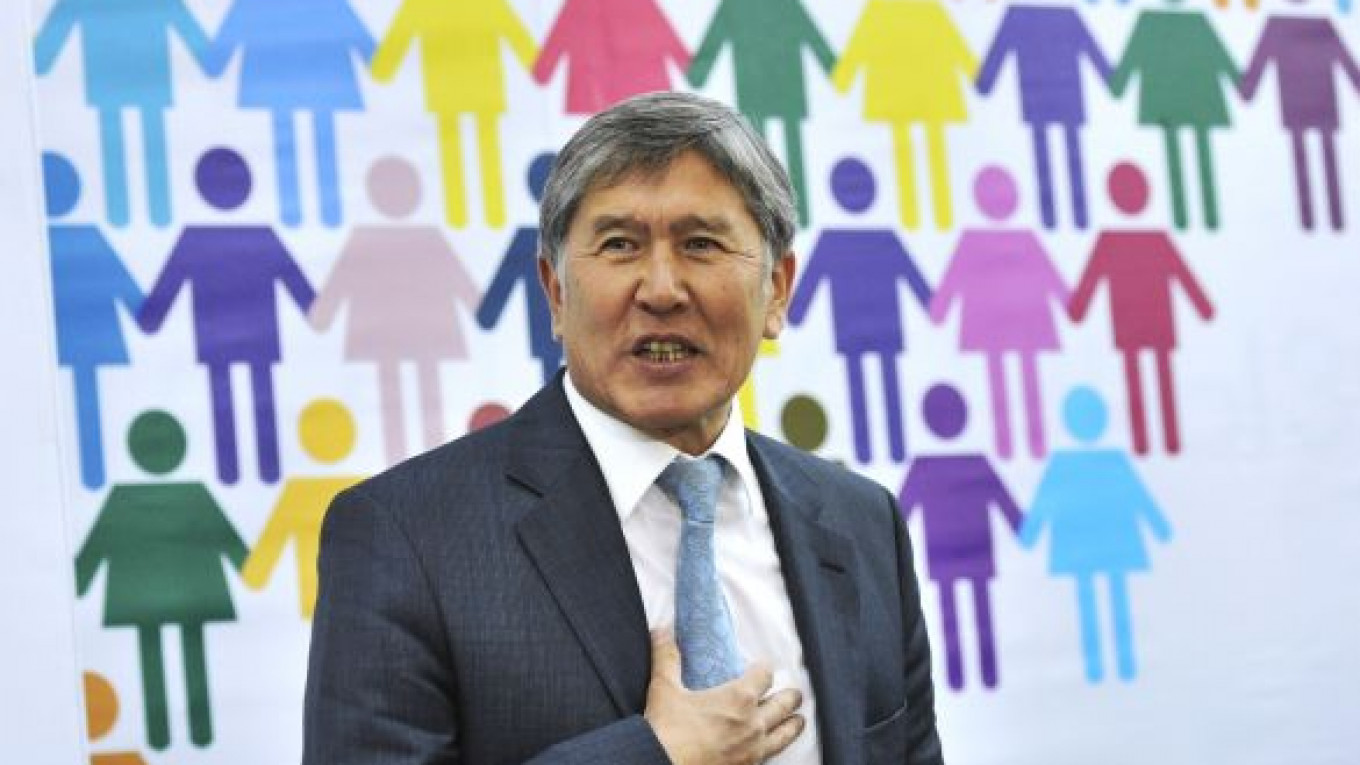BISHKEK, Kyrgyzstan — Kyrgyzstan's president-elect said Tuesday that the U.S. air base needs to close by 2014 because its presence on Kyrgyz soil puts his country at risk of retaliatory strikes from those in conflict with the United States.
Almazbek Atambayev, who won more than 60 percent of ballots in Sunday's vote, said Kyrgyzstan will honor a contract allowing the U.S. lease of the base at Manas through mid-2014.
The United States has used Manas, which is situated within the country's main civilian airport, as a key logistical hub for operations in nearby Afghanistan since 2001
"We know that the United States is often engaged in conflict. First in Iraq, then in Afghanistan, and now relations are tense with Iran," he said. "I would not want for one of these countries to launch a retaliatory strike on the military base."
The base is the subject of frequently extravagant rumors among local residents and politicians, who maintain that fuel dumps by U.S. planes devastate crops and cause illnesses. U.S. military officials have always strenuously denied such claims and say they make every effort to minimize their impact on the area surrounding the base.
Manas remains the only U.S. military outpost in the volatile region after the eviction of another U.S. base from Uzbekistan in 2005 over Washington's criticism of a brutal crackdown on protesters by Uzbek government forces.
Atambayev and other Kyrgyz officials have made similar warnings in the past, saying the U.S. base must close by 2014.
Asked to comment on Atambayev's statement Tuesday, the base spokesman, U.S. Air Force Major Bob Everdeen, said that beyond the current term of the lease agreement "we wouldn't speculate on the future."
The presence of the U.S. base has vexed Moscow, which views Kyrgyzstan as part of its traditional sphere of influence.
Russia also has a military base here. Atambayev, whose recent overtures to Moscow indicate he will pursue an explicitly pro-Russian line, did not say anything about that base.
Kyrgyzstan's economic fortunes are inextricably linked with Russia, where about 500,000 Kyrgyz migrant workers reside, and Atambayev has worked hard to deepen those ties.
By garnering more than 50 percent of the ballots, Atambayev, a northerner, avoided a runoff that would have pitted him against one of his two rivals from the south — Adakhan Madumarov and Kamchibek Tashiyev.
"I was very worried because there was a lot of talk about regional division in Kyrgyzstan, so it is good that the elections have passed, thank God," Atambayev said, speaking at his first news conference after the vote.
Sporadic protests against the election results, ostensibly organized by Tashiyev and Madumarov supporters, broke out in southern Kyrgyzstan Monday, but it is not yet clear whether they will gain any momentum.
Outgoing President Roza Otunbayeva, who has been running the country since April 2010, when former authoritarian leader Kurmanbek Bakiyev was overthrown in a popular uprising, will step down, setting the stage for the first peaceful transition of power in the country's turbulent post-independence history.
Atambayev, 55, who stepped down as prime minister in September to take part in the election campaign, will face the challenge of steering the country out of instability and economic hardship.
He first rose to prominence in the early 1990s when he set up a printing house that published Russian translations of Mario Puzo's "Godfather" series, as well as more controversial fare like Anthony Burgess' "Clockwork Orange" and the works of Marquis de Sade.
A Message from The Moscow Times:
Dear readers,
We are facing unprecedented challenges. Russia's Prosecutor General's Office has designated The Moscow Times as an "undesirable" organization, criminalizing our work and putting our staff at risk of prosecution. This follows our earlier unjust labeling as a "foreign agent."
These actions are direct attempts to silence independent journalism in Russia. The authorities claim our work "discredits the decisions of the Russian leadership." We see things differently: we strive to provide accurate, unbiased reporting on Russia.
We, the journalists of The Moscow Times, refuse to be silenced. But to continue our work, we need your help.
Your support, no matter how small, makes a world of difference. If you can, please support us monthly starting from just $2. It's quick to set up, and every contribution makes a significant impact.
By supporting The Moscow Times, you're defending open, independent journalism in the face of repression. Thank you for standing with us.
Remind me later.






